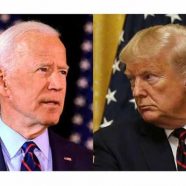
The concept of archetypes was originally created by Carl Jung, the famous Swiss psychologist in 1919, based partially on Plato’s ideas and also on historic cultural, personal and mythical images. Marketers often use the personality traits of an archetype to position a brand so it reflects the values and desires of targeted customers, on the assumption that people emotionally connect with such brands. And each political candidate is essentially a brand as well.
As we enter the final stage of the Presidential election, it may help voters if they can view candidates thru the lens of these archetypes. To help guide such an assessment, here is a summary of the personality traits and brand examples of the 12 archetypes:
- The Innocent– wholesome, pure, trusting, honest, optimistic, happy, e.g. Charmin, Dove, Coca Cola, Ronald McDonald, Ivory, Tom Hanks (and Forest Gump), Mary Poppins, Meg Ryan
- The Explorer/Seeker – adventurous, restless, likes excitement, independent, self-sufficient, e.g. North Face, Jeep, NASA, Patagonia, Amelia Earhart, Shackleton, Lone Ranger, Columbus
- The Sage – thinker, philosopher, reflective, expert, teacher, in-control, confident, e.g. Google, National Geographic, PBS, Mayo Clinic, Einstein, Walter Cronkite, Confucius
- The Hero/Warrior – competitive, aggressive, winner, idealist, brave, proud, courageous, e.g. Nike, Duracell, U.S. Army, Michael Jordan, Braveheart. FDR, Churchill, Indiana Jones
- The Outlaw/Rebel – disruptive, outrageous, counter-cultural, revolutionary, fearless, individualistic – e.g. Harley-Davidson, Virgin, MTV, James Dean, John Lennon, Robin Hood, Lenin, Ali, Woodstock
- The Magician – healer, spiritual, intuitive, charismatic, imaginative, e.g. Disney, Intel, Weight Watchers, Steve Jobs. Yoda, Bill Gates, Ben Franklin,
- The Regular Guy/Gal – straight shooter, not pretentious, people oriented, reliable, practical, friendly, predictable, e.g. Home Depot, Folgers, Ikea, Wendy’s, P&G, Cal Ripken, Seinfeld, girl/boy next door
- The Lover– follows emotions, sensual, seductive, passionate, romantic, indulgent, e.g. Victoria’s Secret, Godiva, Hallmark, Chanel, Casablanca, Marilyn Monroe, Liz Taylor, Cary Grant
- The Jester – playful, clown, impulsive, lives in the moment, creates fun or chaos, e.g. Geico, Ben & Jerry’s, Old Spice, M&M’s, Kittles, Charlie Chaplin, John Carson, Bob Dylan
- The Caregiver – selfless, nurturing, altruistic, supportive, generous, empathetic, kind, e.g. J&J, Pampers, Campbell Soup, Volvo, Heinz, Mother Theresa, Princess Diana, Ronald Reagan
- The Creator – innovative, artistic, ambitious, experimental, turns ideas into reality, e.g. Lego, Apple, Adobe, Crayola, Leonardo Da Vinci, Tim Burton, Picasso, Martha Stewart
- The Ruler– organizer, takes charge, productive, confident, manager, efficient, seeks control, e.g. Mercedes Benz, Microsoft, American Express, Rolex, Margaret Thatcher, soccer moms
The challenge in marketing is to marry the beliefs and emotional feelings of the target audience with the credible and obvious assets of a product or personal brand. Usually there is a core brand archetype, plus qualities of other archetypes that collectively mirror the values, perceptions and aspirations of the customer (or voter). In the upcoming election, the two candidates (Trump and Biden) have very contrasting archetype identities:
Trump – The Outlaw/Rebel – he prides himself as a disruptor, an outlier fighting political correctness and the establishment, a non-traditionalist and hostile to his adversaries. His loyal supporters have similar values and are very frustrated with conventional politics and government, so they embrace a strong emotional connection with Trump even to the extent of overlooking all his falsehoods. Trump believes he possesses characteristics of other archetypes too: The Ruler (a gifted manager) and Creator (a successful developer of wealth), although many would question these qualities.
Biden – The Regular Guy – the gregarious, down-to-earth and dependable traits of Biden represent the opposite of the brashness, narcism and abrasiveness of Trump. Biden may not have the charisma of Kennedy or the broad appeal of Eisenhower, but his potential acceptance is more expansive than Trump’s. In fact, the primary motivation for Biden is not his archetype qualities as much as a passionate desire to avoid another 4 years of Trump – 56% of Biden supporters prefer him because “he is not like Trump”. The second reason is his performance and leadership – 19% (Pew Research 8/20). Secondary archetype qualities perceived for Biden are from The Caregiver (e.g. empathy and supportive) and The Innocent (e.g. pure and optimistic).
Positioning brands using archetypes is not arbitrary or random. It is based on a lot of research on the values and desires of the target customers, along with their perceptions of brand images. It is much easier for people to relate to and feel comfortable with a brand that connotes such personality traits. These two notable candidates with contrasting identities demonstrate how useful an archetype can be for understanding the differences and making a prudent vote choice.


